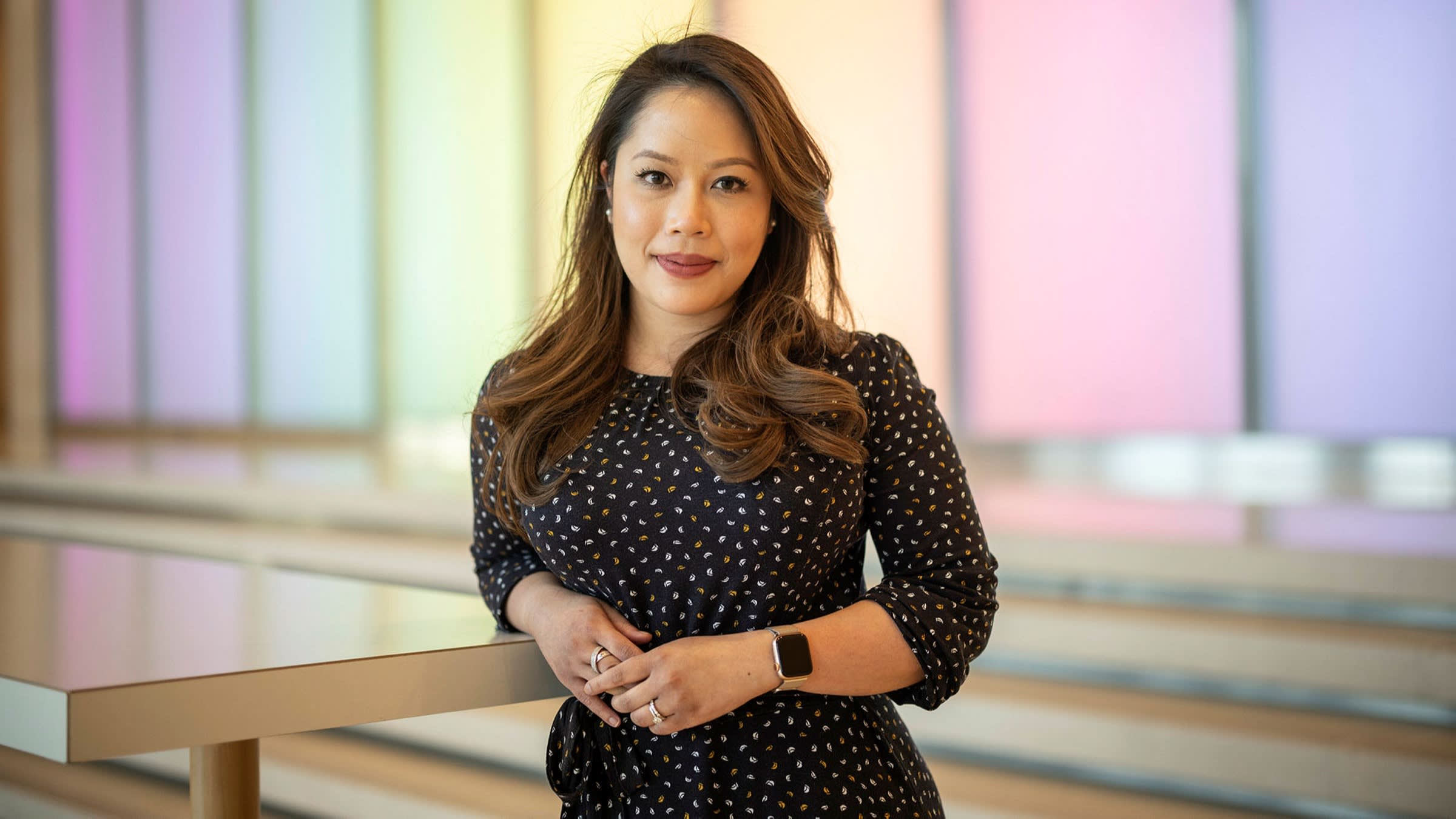Faith at work: the entrepreneurs who connect the spiritual and professional
Many factors go into the choice of a career: personal aptitude, parental expectations, educational opportunities, serendipity. For Sally Murray, it was more straightforward: she felt a prompting from God.
And so it was that in 2018, she quit her job as a full-time physiotherapist, relocated her family from suburban London to rural Derbyshire and set up an ice-cream parlour in the quaint tourist village of Milford.
In addition to sharing the delights of her spiced blackberry and apple crumble ice-cream, Murray is passionate about using her small business to help victims of human trafficking — a cause she attributes directly to her Christian faith. “My go-to verse in the Bible is Proverbs 31: ‘Speak up for those who have no voice, ensure justice for all those who are dispossessed’,” says 53-year-old Murray.
To that end, Just Ice, which she runs with her husband Gavin, a former Baptist minister, currently employs two survivors of trafficking. Wherever possible, the pair also seek out suppliers who share the same ethos.
Melding faith and work is nothing new, of course. Victorian Britain, for instance, produced many high-profile business leaders with a strong religious bent: men such as William Lever of Unilever fame (Congregationalist), the tourism entrepreneur Thomas Cook (Baptist) and the “chemist to the nation” Jesse Boot (Methodist).
Nor is it a solely Christian phenomenon. Strong faith positions inspire a host of business ventures around the world, from providers of Islamic finance and Buddhist healthcare to purveyors of Kosher foods and Ayurvedic medicine.
Yet the rise of the modern “profit for purpose” movement, to use Murray’s phrase, is inspiring a new generation of religious believers to connect the dots between their spiritual and professional lives.
There is a logical confluence between the two, says Rachael Saunders, deputy director at the Institute of Business Ethics, a UK charity that promotes high standards of corporate behaviour. Founders of companies or people appointed to senior roles “naturally reflect” on the difference they want to make, she adds.
“People for whom faith is important are likely to immediately see that contributing to society can be part of that, either because of their faith teaching or because they’ve seen their faith community play that role of service,” she says.
It is a link that James Perry has also noted in his role as a board member with B Lab, organiser of the burgeoning B Corporation movement — a global network of companies that make themselves legally accountable to their workers, suppliers and other stakeholders (in addition to their shareholders).
“I’m continually surprised how many people I meet through B Lab who have some form of faith or spiritual life,” he says. “They tend not to wear it on their sleeve, but it’s a big part of why they do what they do.”
The connection between faith, enterprise and social purpose is the subject of a recent report published by the Jubilee Centre, a Christian charity based in Cambridge, eastern England.
The faith-based businesses surveyed in the report espouse the traditional principles of business ethics, such as fair pay, dignified work and community investment. Yet the research also identifies a growing appetite for turning market mechanisms to the cause of social justice and environmental stewardship.
“It is not difficult to see how being a teacher or a nurse or a carer can be a heartfelt calling, but the idea that private-sector roles can also be vocational and even missional is definitely growing,” argues Tim Thorlby, the Jubilee Centre’s director.
A case in point is Gloucestershire-based coffee roaster, Ethical Addictions. Motivated by the biblical injunction to “love thy neighbour”, the company’s owners decided early on to circumvent the coffee industry’s middlemen and instead source directly from farmers themselves. Not only does this direct trade model permit the payment of an above-market price, but the company’s owners also commit to undertake local education projects and other philanthropic investments.
“We’ve been asked to love God and love our neighbour, and we need to live that out, whether that’s as a member of the clergy, sweeping the roads or running a business,” says Ian Meredith, Ethical Additions’ co-owner and an evangelical Christian.
As well as a powerful sense of purpose and internal harmony, some faith-driven entrepreneurs report finding a remarkable coherence between their religious tenets and the principles of sustainable business.
Pooran Desai makes precisely this point. Brought up a Hindu but strongly influenced by Daoist teaching, Desai set up the environmental consultancy Bioregional in 1994. He credits Daoism’s emphasis on the interconnection of all things and the search for equilibrium as guiding forces throughout his career.
A notable manifestation is the One Planet Living framework, an influential decision-making tool created by Bioregional and the conservation group WWF in 2002. The framework, which promotes ideas of ecological balance, has since been used by hundreds of companies to better manage their environmental footprint.
Desai is not alone in finding such synchronicity. Kai Whiting, a lecturer in sustainability at the Catholic University of Louvain in Belgium and an avid follower of Stoicism, sees the same in his chosen philosophy.

Meredith of Ethical Addictions knows — and exploits — this advantage. When looking to raise finance to support a recent expansion plan, he left investors in no doubt what they were buying into.
“I said that I’m not willing to answer you in three years’ time why we’ve spent £10,000 on a water project instead of giving extra dividends . . . you need to know now, we’re just not having that conversation,” he recounts.
However, religious faith is no shield against harsh market realities. Having endured the Covid-19 pandemic, Sally Murray’s ice-cream venture now faces high inflation and a long winter.
Yet, her sense of calling remains as strong as ever. As she reflects philosophically: “Because we have taken bigger risks and God has had to show up for us, I’d say our faith has actually grown.”
This story originally appeared on: Financial Times - Author:Oliver Balch
























